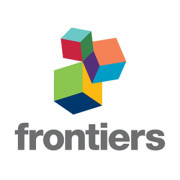- Science News
- Research Topics
- 2024's top 10 tech-driven Research Topics
2024's top 10 tech-driven Research Topics

This year, the scientific community is preparing to embark on a transformative journey as technologies like artificial intelligence (AI) propel humanity into new territories of innovation and knowledge.
In this context, we have compiled a list of 10 Research Topics that embrace the potential of technology to advance scientific breakthroughs and change the world for the better.
Researchers are exploring the possibilities of nanomedicine, deep learning, and genome-editing technologies to address genetic disorders, infectious diseases, and cancer.
All these Research Topics are currently accepting contributions. Submit your research and help find solutions for healthy lives on a healthy planet.
Artificial intelligence
1 | Artificial Intelligence Applications for Cancer Diagnosis in Radiology
Radiological images are common sources for cancer detection, but early signs are subtle, and treatable cancer is easy to miss in the early stages. Artificial intelligence has enormous prospects as an assistive tool to aid radiologists in cancer detection.
This Research Topic investigates the impact of novel AI applications using recent developments in computer vision, machine learning, and deep learning models for cancer detection, identification, and healthcare outcome improvements.
Manuscript submission deadline 28 April 2024
2 | The Applications of Artificial Intelligence for Innovation in Dentistry
The applications of AI in dentistry may open a new gate against challenging issues faced by clinicians and scientists in dental research.
All these opportunities have motivated the scientists leading this Research Topic to explore AI's opportunities in supporting dental medicine, including predicting the properties of dental materials and the optimum features of new dental materials.
Manuscript submission deadline 31 March 2024
Nanomedicine
3 | Editor's Challenge: Dr. Qingxin Mu - How can Nanomedicine Approaches Advance Multi-targeting Strategy in Combination Cancer Therapy?
This Research Topic, led by Dr. Qingxin Mu and in collaboration with Dr. Marina Pinheiro, investigates the role of nanomedicine and nanotechnology in promoting multi-targeting strategies in combination cancer therapy.
Manuscript submission deadline 14 February 2024
4 | Nanoparticles for Cancer Immunotherapy: from Basics to Clinics
Nanoparticles have been engineered to improve the delivery of a wide range of immunotherapies –including small drugs, nucleic acids, peptides, or antibodies– after intravenous administration towards tumor sites, but also for other routes of administration to improve their efficacy and safety.
Against this backdrop, we introduce a Research Topic covering how nanotechnology is used in cancer immunotherapy, investigations developing and evaluating new diagnostics, and therapeutic nanoparticles with the potential to improve the outcomes of patients with cancer.
Manuscript submission deadline 30 April 2024
Deep learning
5 | Deep Learning in Molecular Recognition
Molecular recognition —the non-covalent interaction between multiple molecules— plays critical roles in many natural biological systems, such as DNA-protein, RNA-ribosome, enzyme-substrate, receptor-ligand, and antigen-antibody.
This Research Topic combines the latest developments and challenges in molecular recognition, employing deep learning techniques. It also focuses on applications such as drug discovery, protein-protein interaction prediction, and structural biology.
Manuscript submission deadline 26 April 2024
6 | Machine Learning and Deep Learning Applications in Pathogenic Microbiome Research
Machine learning and deep learning are powerful tools in advancing microbiome research.
For this Research Topic, scientists seek to advance machine learning studies – deep learning, in particular – to explore new techniques in pathogenic microbiome research. Their goal is to find relationships between microbiome, human health, and the environment by studying high-throughput sequencing data of microbes.
Manuscript submission deadline 07 March 2024
Genome-editing technologies
7 | CRISPR: The Game Changer in Gene and Cell Therapy
The advances in genome engineering technology have substantially accelerated the development of gene and cell therapy.
Notably, this Research Topic encourages novel CRISPR-based gene and cell therapy designs to improve treatment efficacy and safety for patients with genetic disorders, infectious diseases, and cancer.
Manuscript submission deadline 26 April 2024
8 | Precision Oncology in the Era of Crispr-Cas9 Technology
Precision medicine has been directly linked to advances in molecular biology techniques, mainly DNA sequencing. Oncology has benefited from these technologies to advance in early diagnosis and stratification of patients for personalized treatment.
All this potential has influenced this Research Topic, which focuses on CRISPR-Cas9 technology in preclinical settings, concentrating on precision medicine in oncology. The intention is to fill the gaps in correcting the defect and expanding knowledge in tumor suppression, metastasis, and mosaicism using mouse models.
Manuscript submission deadline 29 February 2024
Brain-inspired technologies
9 | Neuromorphic Computing: From Emerging Materials and Devices to Algorithms and Implementation of Neural Networks Inspired by Brain Neural Mechanism
Neuromorphic computing, inspired by brain neural and cognitive mechanisms, models information processing and is emerging with the promise of transforming information processing technology.
This untapped value has stirred up a Research Topic that focuses on providing different aspects of brain-inspired neuromorphic computing, from training algorithms for spiking neuron networks to hardware implementation of neuromorphic computing and the application of neuromorphic computing.
Manuscript submission deadline 13 February 2023
3D printing
10 | State-of-art of 3D Printing and Bioprinting Technology in various domains of Biomedicine, Tissue Engineering and Regenerative Medicine
3D printing technology is an additive manufacturing process where biomaterials are used for various tissue engineering applications. Various materials are used to develop implants and constructs depending on the tissue engineering applications.
This Research Topic introduces the concept of 3D printing technology in biomedical applications for the scientific and technological communities. The team in charge of the research aims to enhance 3D printing technology studies for the benefit of biomedical engineers and scientists.
Manuscript submission deadline 06 March 2024







